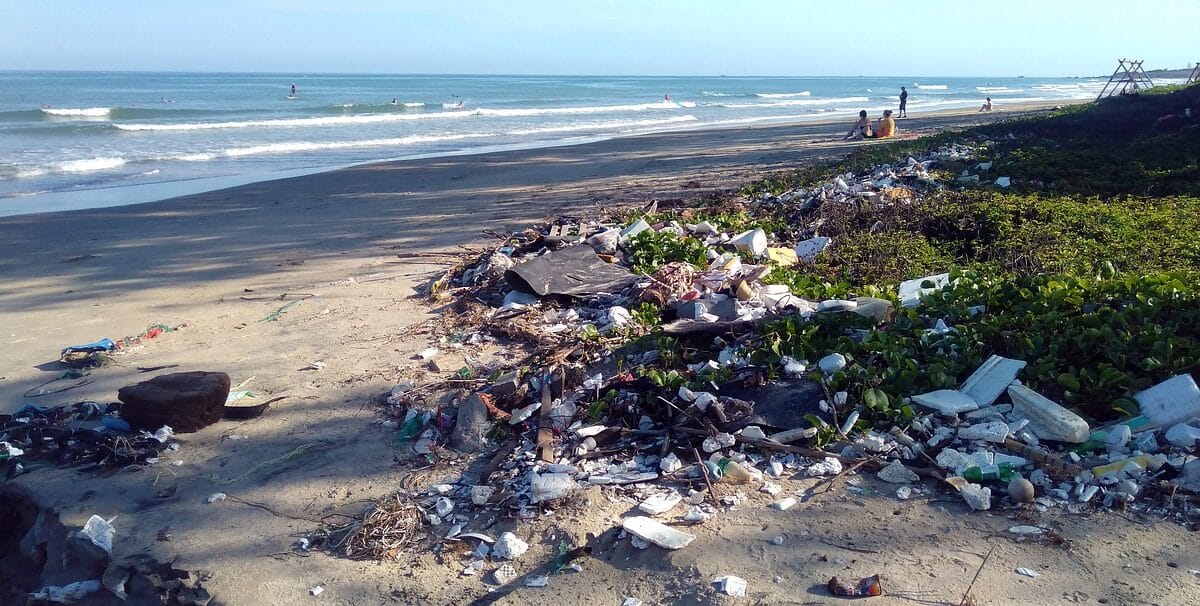
How Much Waste Does Australia Produce? 🤔🗑️
How Much Waste Does Australia Produce? 🤔🗑️: A little bit over a month to go, and we have ourselves another Earth Day in 2022! And what better way to celebrate it than to talk about the state of the environment, right? In saying this, for today’s blog, I would like to talk about the amount of waste Australia produces. Let us delve deeper into this.
A bit about Waster
Before we tackle how much waste Australia produces in the present times, let me share with you more information about Waster itself.
>>Download Now: Free PDF Business Owners Guide To General Waste Bin Services
We here at Waster provide you with innovative solutions for you and your business’s waste management and recycling needs. Furthermore, we provide flexible, 30-day contracts instead of the typical lock-in contracts, which proves to be better.
Click on the blue button to learn more.
READ: Nappy Waste Collection 🧷🚮
How much waste Australia has produced in recent years
The common perception we all believe in is that as the economy grows, so does the waste produced. Look at it this way, the more we consume, the more we produce. Additionally, we can attribute to the ever-growing human population. Greater number of people equals more resources needed. As a result, this equates to more rubbish.
And we will focus more on that topic using Australia as a subject. Even though Australia accommodates fewer people than in some countries in the world, the amount of waste production here is still high enough to be worried about. In a typical Australian household, the average family produces enough rubbish to completely fill up a three-room bed house, with them producing about 2.25 kg of waste every day. This gives us a better context on how much waste Australia produces. Let us now go on a national scale.
On a national scale
As I have stated above, compared to other big countries, Australia has a much lower population rate. Did you know that Australia’s population density is one of the lowest in the whole world? In fact, it placed ninth on the top 10 least populated places in the world in a research conducted around February 2020. But having said all of these, why does Australia still produce an astounding amount of waste each year?
Australians produce 67 million tonnes of waste each year! It is the latest statistic in this regard, tallied in 2016-2017. The report also states that 54 million tonnes of that said waste is known as “core waste”, which is taken care of by the waste and resource recovery industry. Additionally, the remaining 13 million tonnes of said waste is from electricity generation, mud from refining, farm manure, and liquid waste. See our blog on grease trap price.
More bad news

As you might have known by reading our blogs, there are mainly two types to deal with disposed of waste. The first way to deal with it is sending it to a landfill. We only send waste to landfills if they truly do not serve any purpose anymore. See our blog on illegal dumping in Australia.
The second – and a much better – way to deal with waste is by recycling. By recycling your waste, you:
- Ensure the waste does not go to landfill
- Conserve natural resources which are hard to replace
- Save energy
- Help save the environment
The ones I enumerated are good enough reasons to prioritise recycling. This should be a way to process and reduce waste produced in Australia. But the bad news is that even recyclable materials are being sent to landfills in Australia. Along with the general waste produced by Australia being sent to landfills, an estimated 780 rubbish trucks’ worth of recyclables were sent to landfills just a few months ago. This is alarming news. In the next section, I will discuss why this is happening and why this greatly affect the amount of waste Australia produces.
China’s effect
One major reason for Australia’s struggles in dealing with waste is the Chinese government. 2 years ago, they deployed the National Sword Policy. This resulted in the banning of plastics and other materials. In the past years, Australia mainly relied on China to deal with its waste. With that gone, it immediately affected 1.3 million tonnes of waste, which roughly equates to about 4 per cent of Australia’s recyclable waste.
This resulted in a chain of bad events; I will state the two. One of the first major effects is the one I told in the above section. Without nowhere to go, the recycled waste intended to be sent to China were sent to landfills, instead. One more effect is it also resulted in the pollution of Southeast Asian countries. As an alternative, Australia instead dumped trash into countries like Malaysia, Indonesia, and India. See our blog on Australia’s waste export.
In saying this, what can we do to alleviate the waste produced by Australia?
Solution to reduce waste produced in Australia
What can we do to reduce waste produced in Australia? One answer: Proper waste management. First and foremost, we as a nation should prioritise bettering the country’s waste management systems. Yes, a simple yet important way it is. With better waste management, recyclers can treat recyclable materials and landfill supervisors can treat general waste with efficiency. Additionally, it deals with the statement I said in the above section [on recyclable waste going into landfills].
Conclusion on how much waste Australia does produce
The sheer amount of waste that the average person produces (waste per person) really is mind-boggling. Household waste obviously multiplies this.
So much of the waste is caused by one-off usage of plastics such as plastic bags, drinking straws and other small items.
As a result, we have to do our part as concerned citizens and reduce our waste production. It all starts at our own house. And from there, it grows up until the national level.
Waster: things you need to know
If you’re looking for recycling bins, check our waste recycling shop and find the best deals in terms of pricing and services.
Also, please call 1300 WASTER (1300 927 837), or email us at enquiries@waster.com.au if you have any further questions.
Leave a Reply Cancel reply

Product categories
Most Popular Posts
-
Commercial Waste Management Services: Reduce Waste Collection Costs! 🚍
-
Medical Waste Disposal: Everything You Need To Find Out In 2024! 💉
-
Rubbish Removal Sydney 2024: Better Bin Collections For Business ✅
-
Clinical Waste Disposal 2024: What To Know About Business Clinical Waste ⚕️
-
Secure Document Destruction 2024: All About Security Bins Shredding 🔒
-
Free Cardboard Recycling 2024: Can I Get Free Cardboard Collection? 📦
-
Confidential Paper Disposal Bins 2024: What You Need To Know About Shredding! 🔒
-
Recycling Bins Australia 2024: Recycling Can Boost Your Profits! ♲
-
Commercial Wheelie Bin Collection: What Businesses Need To Know In 2024 🗑️
-
Commingled Recycling 2024: Why Commingled Bin Is Key To Recycling 🍾













